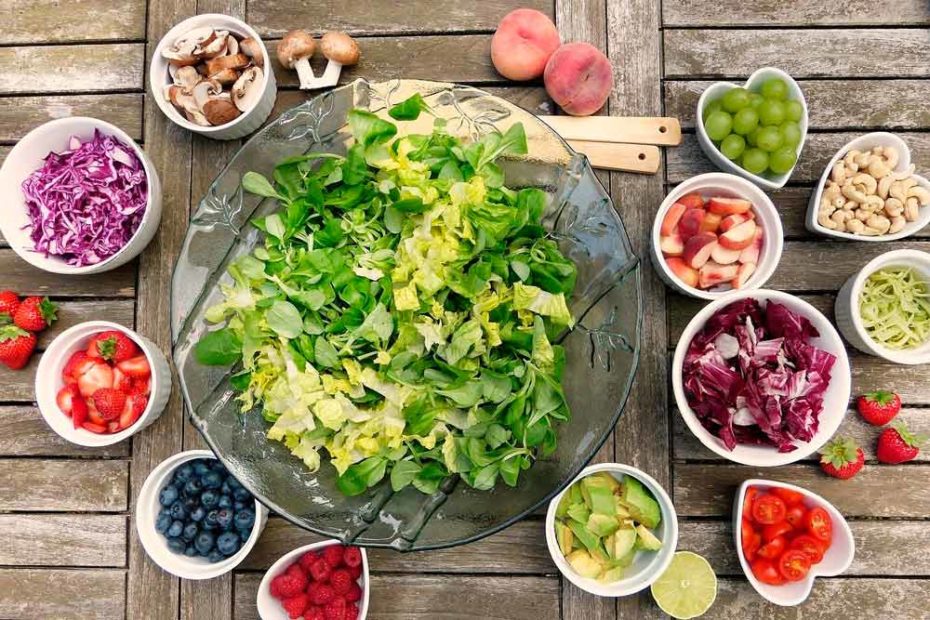Now the festive season is over you might be wondering whether it’s worth detoxing. And the answer is yes! While festive food can be good for you, our bodies are not built to handle a large amount of processed food and it can have a negative impact on our bodies. Read on for 6 evidence-based tips for a post-Christmas detox.
What is detoxification?
Detoxification refers to the process of removing wastes and toxins out of our body. Despite myths surrounding the topic, this straight-forward process mainly involves your liver and other body organs such as your kidneys, lungs, and gut. These organs convert toxins to highly reactive metabolites which would then be excreted out of the body via sweat or urine.
Why do you need it?
Toxins – pollutants, synthetic chemicals, heavy metals, and most processed foods – are everywhere. Overtime, these toxins build up inside you and affect the normal functioning of your critical organs. Not only may this negatively affect health and your body weight, toxicity also slows down the process of detoxification, making the excretion of toxins harder.
As Dr Mark Hyman said in his book The Blood Sugar Solution 10-Day Detox Diet , “when we are toxic, the mechanism for detoxification in the liver gets sluggish, and certain toxins can remain active longer than we want or than our systems can handle. This makes us sick and impedes normal metabolism. It also causes fluid retention, bloat, and puffiness.”
That’s why you need a post-Christmas detox – to improve overall health and to reverse the negative effects built up during the incessant Christmas feasts. Luckily, detoxification is not rocket science – your body has its own way of removing toxins, and all you need to do, is to optimise your body’s natural detoxification system using the following tips.
Tip 1. Look after your Diet
Have a diet that incorporates whole foods. Hodges et al. (2015) demonstrated that whole foods such as cruciferous vegetables (e.g., cauliflower, cabbage, kale, broccoli, Brussels sprouts), berries, garlic, and spices (e.g., turmeric) contribute positively to your body’s natural detoxification process (1). Include protein (e.g., wild-caught seafood) and quality fat (e.g., avocado, plant foods rich in omega-3 fatty acids such as flaxseed and chia seeds) into your diet for optimal detoxification. Check out the RYH plan for great recipes that incorporate these whole foods into your daily meals.
Tip 2. Look after your Gut
Your gut is one of the main organs for detoxification. Bacteria in the gut plays vital roles in breaking down nutrients for absorption and producing nutrients called short-chain fatty acids that are beneficial for health.
An optimally functioning digestive system means that nutrients are efficiently and easily absorb by your body to speed up the detoxification process. Pay attention to your gut health by removing obstacles that create dysbiosis (microbiome imbalances) and incorporating gut healing foods. Eat foods with prebiotics (e.g., tomatoes, artichokes, bananas, asparagus, onions, garlic, and oats) to feed the good bacteria in your gut.
Tip 3. Look after your immune system
Your immune system is in charge of defending the body against infections and contributes to your body’s detoxification. Looking after your immune system gives you a stronger body and speeds up the process of natural detoxification. As the lowest standard, practice good hygiene like washing your hands regularly (also especially important in this Covid era!) and eat well to absorb key nutrients that your body needs!
Tip 4. Take enough exercise
Exercise is always the miracle cure. Among its many benefits such as helping fight disease, slowing down ageing, and improving sexual desire, exercise helps you excrete toxins better and burn fat more efficiently. Incorporate 75-150 mins of intensive training (e.g., running, high-intensity interval training), or 150-300 minutes of moderate training (e.g., a socially-distant walk in the park with friends or hot yoga) into your schedule for enhanced detoxification.
Tip 5. Get enough sleep
Sleeping has been demonstrated to benefit several critical processes: during sleep, your brain reorganises and recharges itself, and your body removes toxic by-products (e.g., beta-amyloid which contributes to the development of Alzheimer’s Disease) that have accumulated throughout the day through your glymphatic system. Sleep deprivation and sleep problems impairs the functioning of the glymphatic system, leading to toxin build-up (2). Ensure you have seven to nine hours of quality sleep per night to support your body’s health and natural detoxification system.
Tip 6. Drink enough water
Among functions such as regulating body temperature, lubricating joints, and aiding nutrient absorption, water detoxified your body by removing waste products in the form of urine and sweat. Aim for 125 ounces (3.7L, for men) or 91 ounces (2.7L, for women) of water per day to ensure adequate hydration for a post-Christmas detox.
Conclusion
There you go – 6 evidence-based tips for a post-Christmas detox to cleanse your body and rejuvenate your body! For a more personalised recipe book and advice on how to look after your diets, and therefore your gut and your whole body, find out how RYH could help you.
References
- Hodges RE, Minich DM. Modulation of Metabolic Detoxification Pathways Using Foods and Food-Derived Components: A Scientific Review with Clinical Application. J Nutr Metab. 2015;2015:760689. doi:10.1155/2015/760689
- Eugene AR, Masiak J. The Neuroprotective Aspects of Sleep. MEDtube Sci. 2015;3(1):35-40.
- Palma L, Marques LT, Bujan J, Rodrigues LM. Dietary water affects human skin hydration and biomechanics. Clin Cosmet Investig Dermatol. 2015;8:413-421. Published 2015 Aug 3. doi:10.2147/CCID.S86822
